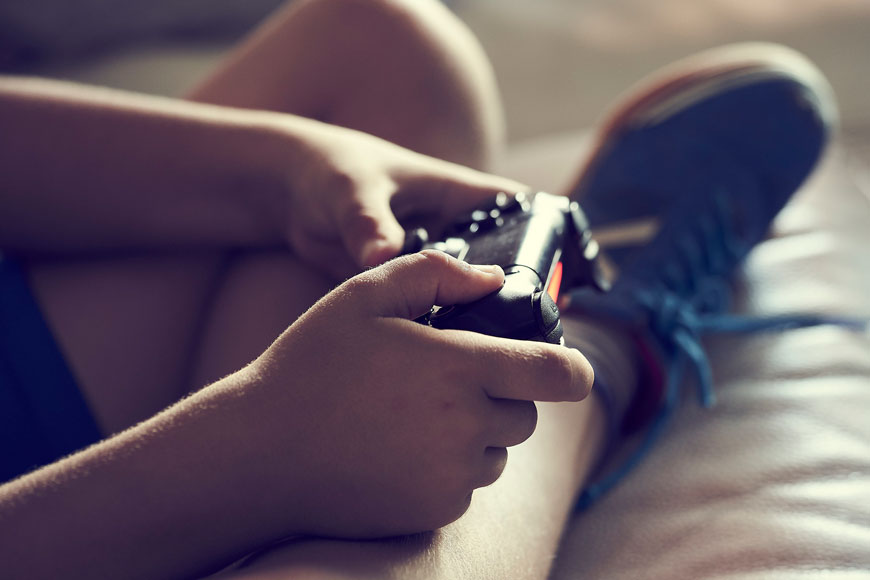How Do I Know if My Child is Addicted to Gaming?
As treatment for young gaming addicts becomes more easily available, an expert explains what parents should look out for.
9 October 2019
Maebelle

All Credits: PA
Children and teenagers spending huge amounts of time playing computer games like Fortnite or Call of Duty is an increasingly common problem
If gaming has moved from a pastime to addiction for your child, read on...
The World Health Organisation describes ‘gaming disorder’ as a pattern of persistent or recurrent gaming behaviour so severe it takes “precedence over other life interests”. Symptoms include lack of control over gaming, and making it a priority over relationships, social life and studying.
Dr Henrietta Bowden-Jones, Director of the British National Health Service (NHS) Centre for Internet and Gaming Disorders, says, “Gaming disorder is a mental health condition which can have a hugely debilitating effect on people’s lives, both for patients and their families who can be left feeling utterly helpless in the wake of their loved one’s addiction.
“Gaming disorder is not a mental illness to be taken lightly – we are talking about instances where someone may spend up to 12 hours a day playing computer games and can end up becoming socially isolated and lose their job as a result.”
But how can you tell if your child is really a gaming addict, or just a kid who enjoys gaming?
SEE ALSO: Ask An Expert: How Much Screen Time Should My Child Be Allowed?
Here Dr Linda Kaye, a senior lecturer at Edgehill University and an expert on cyberpsychology, explains what to look out for, and how to deal with it.
Mental health problems
“People who are displaying problematic gaming are the type of people who might have mental health issues anyway, so some of the behaviours might be more characteristic of problematic behaviours more generally, rather than just gaming. These things tend to overlap.”
Using it as an escape
“There can be a preoccupation with things that are distracting from real world issues – gaming can be a particularly attractive activity to take time away and distract from problematic thoughts, and a way of escaping from the real world.”
Conflict in real life
“Conflict is characteristic of anyone who’s using gaming in a problematic or disordered way. A lot of the time they’re taking time away from having healthy relationships with their parents, for example. Being preoccupied with gaming activities means they’re not focusing on the here and now of the relationships in their life.”

What can parents do?
“First of all, it’s understanding where the behaviour’s coming from and what the reason for the behaviour is,” says Dr Kaye. “So rather than issuing an outright ban on gaming, think about why people might be seeking out gaming as a distraction or as a route to coping. Is there something underlying it? A lot of the time it’s just a coping mechanism.
Parents are encouraged to try to think of other activities that can distract them in a healthier way and provide a balance with gaming. A lot of the time it’s trying to understand the root of the issue rather than attributing the problem to the gaming, Regulation might work better than an absolute ban.
“There’s no universal one-size-fits-all solution to this. Gaming addiction is usually just a manifestation of something more complex. It’s important to understand how the gaming relates to the individual’s circumstances, their relationships and early experiences. Treatment has a role, but alongside other solutions," Dr Kaye concludes.

























.png?itok=SvZPqMHH)




.png?itok=uB2ieOR7)












